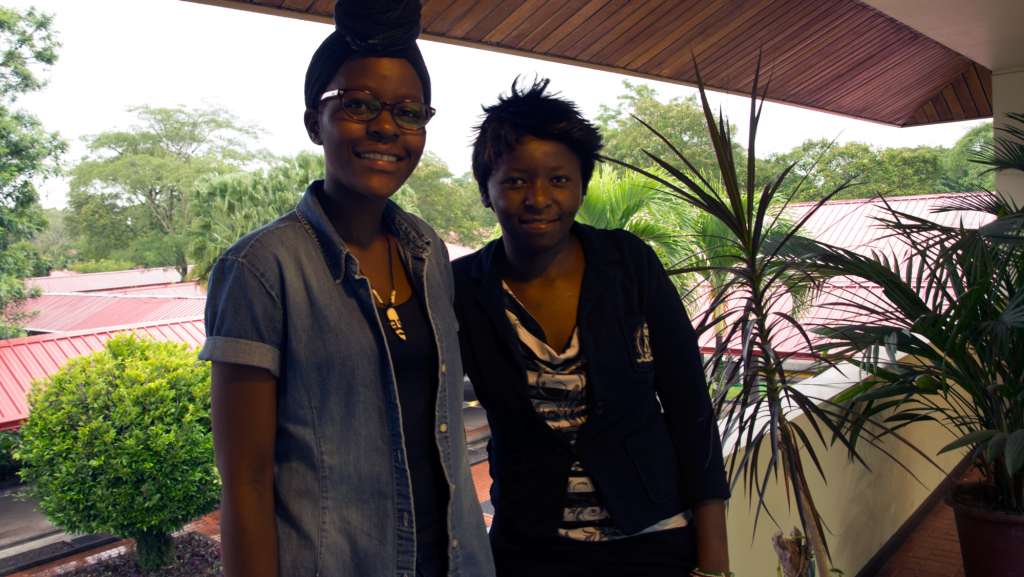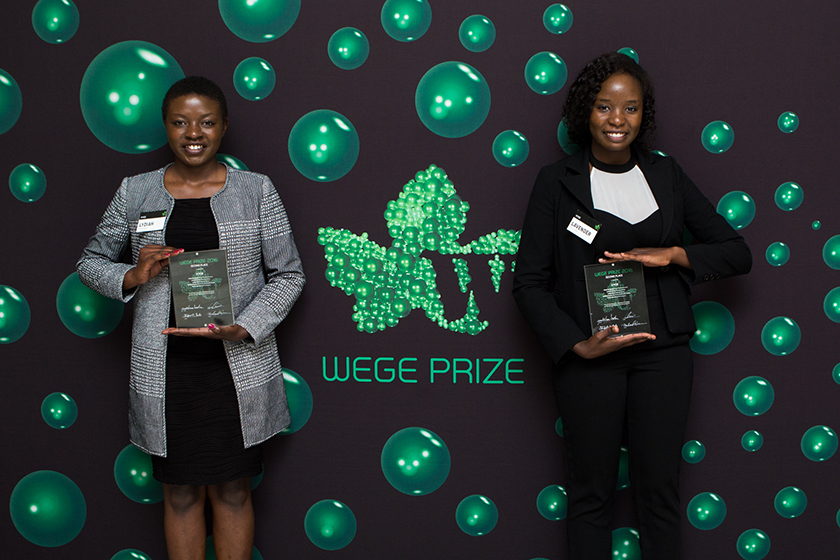A circular economy for Kibera, Kenya and the world
The MasterCard Foundation scholars Purity Muthomi (’17 Kenya) and Phenny Omondi (’17 Kenya) know firsthand the problems Kenya faces currently.
Last year, they decided to create a project for the Hult Prize, a foundation which aims to create and fund projects of young entrepreneurs from different universities. The theme was “Overpopulated Cities”.
They did not pass to the semifinal round, so late last year when they received the invitation to participate in the Wege Prize, they decided they would try again. The Wege Prize is a competition giving teams of college students the opportunity to experience the power of design thinking and collaborative design firsthand.
And so the Kenyan Youth for Circular Economy (KYCE), a proposed model of circular economy tailored for Kibera, Nairobi emerged as a self-sustaining model for developing countries. With over one million inhabitants, Kibera is the largest informal settlement in Africa.
In mid-May, KYCE took second place, winning $10,000 in capital to start the project.
We spoke with Phenny and Purity about their idea, how it was began, and the next steps for KYCE.
How did this idea get started?
Purity: It began with the two of us when we saw the contest on the Internet. The competition required a team of five people from different faculties. Phenny was responsible for recruiting the rest of the team.
Phenny: Last year, I went to a conference in New York where I met fellow Kenyans who I thought would be interested in participating.
The other members are Lydiah Mpyisi, Lavender Micalo, Kathleen Muraya, and Stephanie Ageng’o.
What motivated you to try again?
Phenny: In the Hult Price, we did not make it to the semifinals, but we still had a lot of faith in our project. Daniel Sherrard (EARTH University Provost) sent us an email inviting us to participate. Purity and I read it separately and we were so excited when we met up to talk about it, we both knew we had to give it another try.
The Project
The project involves the implementation of different actions to stiumlate the economy of Kibera, while taking measures toclose all production cycles. Purity and Phenny both emphasize the importance of not allowing “loose ends” when carrying out different activities.
Phenny: In Kibera there are many people who do not have toilets, so they deposit their waste into ordinary plastic bags and then discard these bags randomly, oftentimes in the Nairobi River.
We partner with a company called People. They sell biodegradable bags for human waste that can later be used to make fertilizer. But the citizens of Kibera do not know how to fully take advantage of this invention, so we want to buy the fertilizer in order to apply it to a garden we have, and that way we can have a positive impact on health.
Purity: We also have a biodegester that can be used as a source of electricity by filling with liquid waste. That’s one way we can help to reduce crime as well, by using this energy to illuminate the city.
We will also work to clean up local garbage dumps by partnering with buyers and selling them all of the recyclable and reusable waste, and turn organic waste into compost. Then we can great a community garden and help the social sector, creating employment for members of the community, all sustainably.
The Award
Purity: I’m sure we were more nervous than the other girls who were there. I was distracted all day and couldn’t even eat lunch. We were so happy when we received the news.
Phenny: I cried. That day I woke up and sat down at the computer to read about the other presentations. By the way, our competitors had very good projects, , we got an idea by reading summaries on the page, and reading them made us think, “Wow, maybe we won’t get this.”But we knew the most important thing was to explain our plan clearly.
Purity: The idea was to present a strong project that looked professional and win the trust of the judges.
Phenny: Our speaker was one of our colleagues from Kibera, and that had significant weight. Also, the fact that our team is comprised of all women and from the same country boded well for us.
Challenges
Of course the road to building KYCE was not easy. Time differences created a challenge, with Phenny and Purity in Costa Rica, one of the partners in Kenya (nine hours ahead) and three partners in the United States (two hours behind).
They also had to juggle the class schedules and fulfill their own duties as students.
Phenny: Apart from the time differences and general fatigue, I think we also found differences of opinion. We are all involved in various careers and our individual experiences give us the opportunity to know what can and can’t be done.
Next steps
Phenny: We had a meeting a week ago to divide our tasks. Regarding money, we are fairly distributing the prize so that 75% goes to the project. The idea is not to win the prize and let KYCE be forgotten, especially after so much effort.
Purity: What we have to do not is to invest in patenting the idea, and creating the website and a logo. We need enough investment to continue shaping the project, and obviously this would help it grow.
Their effort and dedication is remarkable, and their love for their country is clearly guiding them to build such a great project.
In closing, Purity says, “The key is to be disciplined; we sometimes can’t do things we want to do. Sometimes we had no time to even go to the pool for a swim, but it is well worth the sacrifice. When one wants to do something profound for their community, sleep and fun are no longer priorities.”






